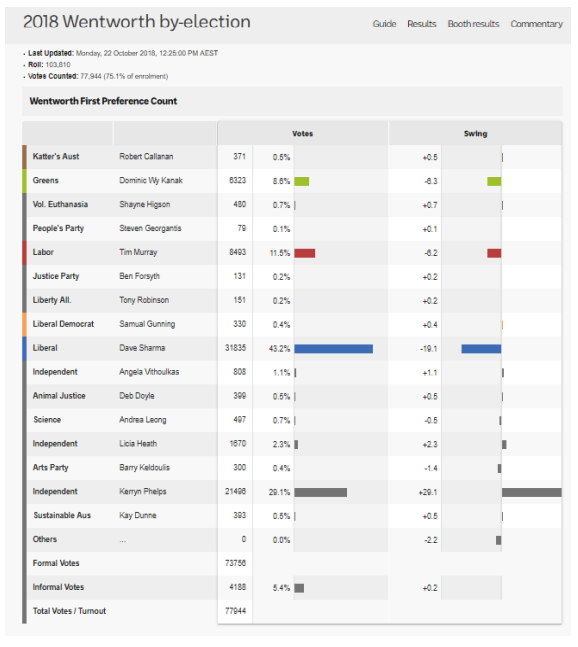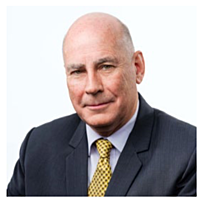Bad news for Labor's franking credit policy
This week I celebrate my 60th birthday. Therefore, I feel intitled to take liberties and reflect on some history, as well as my thoughts on the Wentworth bi-election. I hope that you can accept my indulgence.
I was born in Randwick, raised in Rose Bay and educated at Rose Bay Public and Vaucluse Boys High Schools. From there, I returned to Randwick to study Commerce and Law at the University of NSW. Thus, I do have form in the Wentworth electorate. The above reads like a privileged upbringing – but it wasn’t.
My parents served in the Second World War, married and rented in Rose Bay from the late 1940s. They paid ‘key money’ to secure a two-bedroom apartment. Back then, key money was charged by landlords to renters to secure a property. There was an extreme shortage of accommodation after the war and this was used (and sometimes abused) by property owners to extract maximum value from renters. My parents borrowed and scraped together 1,000 pounds to secure a key. A massive amount of money in those days.
In the mid 1960’s, my parents bought a 2-bedroom unit in O’Sullivan Road, which was where my two brothers, one sister and I were brought up. Yes, our family of six were housed in this unit with one bathroom!
Rose Bay Public School still exists today, but Vaucluse Boys High School has been demolished to make way for a retirement home with expansive views over Vaucluse Cemetery and east to the Pacific Ocean. The facilities of both schools were adequate, but outrageously inferior to the offers of Cranbrook or the Scots College in the area. However, the schools were harmonious places, bringing together students from diverse backgrounds and we all benefited greatly from passionate and committed teachers.
When I was about 12 years old, my mother saw an opportunity to gain a bursary from Cranbrook and arranged for me to sit exams. I recall sitting in a room with maybe a dozen other applicants and staring into an exam paper that required answers far beyond my capacity. At that point, and early in my life, I realized that the system was “gamed” and that Cranbrook was seeking out geniuses. I remember sitting at the desk and deduced that the questions were constructed so that academically exceptional students could be identified to bolster the performance of the school. Today I reflect that the exam could have driven me to think that I was a fool and unworthy – but it didn’t.
Forty years ago, Wentworth was a diverse electorate in terms of socioeconomic spread. It housed both the very wealthy and the not so wealthy. It was an area many aspired to live in and still is today. Its reach encapsulates both high end homes in Point Piper and high-density rental areas like Kings Cross.
Wentworth by-election
Those reflections bring me to the Wentworth by-election which saw a massive swing to the independent candidate – Kerryn Phelps. The following table summarises the result

On a two-party preferred basis, the result was as follows.

While the swing against the Government candidate Dave Sharma was large, there were other big swings that haven’t received much attention.
For instance, the Australian Labor Party primary vote was appalling with just 11.5% of the vote and a swing of 6.5% against them. The Greens vote also dropped by about 6.3%, and combined, the ALP/Greens suffered a 13% negative swing. That was better than the 18% swing against the Government but not by much as clearly the independent drew votes from everywhere.
There is the claim that Labor ran dead – whatever that means – but candidate Phelps, among other initiatives, produced a significant policy a week out from the polling day when she directly challenged Labour policy on franking credits.
The AFR reported the policy statement as follows:
“Leading independent Kerryn Phelps will use a win in Saturday's Wentworth byelection to secure a five-year freeze on changes to superannuation and oppose Labor’s abolition of franking credit refunds in Parliament… She said parliament should block dividend imputation changes until proper economic assessment and consultation was completed...” "I think we have to address fairness, sustainability and certainty concerns that are in the current superannuation system so all Australians are protected in retirement," former Australian Medical Association boss Dr Phelps said”.
"People are telling me they are really sick of constant changes. We've had a major change to super every year for the past 25 years and people can't make lasting plans for their retirement. … A five-year moratorium on any further reform would restore confidence and allow the government to address the gender imbalance in retirement savings – as Australian women retire with 47 per cent less saved than men.”
The above statement and the overall result in Wentworth lead me to three conclusions.
First, the proposed franking changes are an issue which will drive affected voters away from the ALP. Wentworth was a litmus test on many levels and the low vote for the ALP, when a significant anti-government vote was clear to see, is most telling. Maybe the 6% swing against the ALP is an indication of the franking swing.
Second, a groundswell against all mainstream political parties may be developing in Australia. Therefore elegant, well qualified and intelligent independent candidates could be strongly supported in the next election and more so if they prosecute policy agendas which are meaningful and significant to the electorate; and
Third, the next parliament, and particularly the Senate, is likely to be greatly influenced or controlled by independents. If there is a change in government, the Wentworth bi-election would suggest that the Senate will swing further to minority parties. Thus, the chance of significant changes in franking taxation laws is low in my opinion.
With state elections set for Victoria (in late November) and NSW (in March), it is hard to imagine the ALP, Greens and independents forcing an early Federal Election. The campaigns would be confused, and a proper debate would be lost.
So, if the ALP continues with their (unadjusted) franking policy, they will run the real risk of a backlash from an important sector of the electorate, the selffunded retirees, that will bolster the disenchanted middle that was starkly on display in Wentworth

